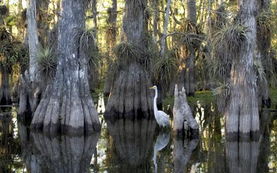“Biological Wonders: Unraveling the Mysteries of Life”(生物奇迹:揭开生命的奥秘)探讨了自然界中各种令人惊叹的生物现象和生命的复杂性,从微观的细胞结构到宏观的生态系统,生物学揭示了生命的奇妙之处,它研究生物的进化、遗传、发育、生理等方面,帮助我们理解生命的起源和发展,通过对生物的研究,我们不仅能欣赏到大自然的神奇,还能为解决人类面临的挑战提供启示,如疾病治疗、环境保护等,生物学的不断发展将继续为我们揭示更多关于生命的奥秘,推动科学和社会的进步。
Life is a remarkable phenomenon, and at the core of this complexity lies the concept of biology. Biology, the study of living organisms and their interactions with the environment, encompasses a vast array of phenomena and processes that continue to fascinate scientists and enthusiasts alike. In this article, we will explore the diverse aspects of biology, from the microscopic world of cells to the macroscopic ecosystems that support life on our planet.
Cells, the building blocks of life, are the fundamental units of biological organization. They come in various shapes and sizes, but all share certain characteristics. Cells have a membrane that separates the internal environment from the external world, allowing for the selective exchange of nutrients, waste, and information. Inside the cell, there are specialized organelles that perform specific functions, such as the nucleus, which houses the genetic material, and the mitochondria, which are responsible for energy production. The study of cells has led to significant advancements in understanding diseases, as well as in the development of new technologies and therapies.
Genetics is another crucial area within biology. It explores the inheritance of traits from one generation to the next and the molecular basis of heredity. Genes, composed of DNA, encode the instructions for the development and functioning of all living organisms. The field of genetics has revolutionized our understanding of evolution, as well as our ability to diagnose and treat genetic disorders. Advances in genetic engineering have also opened up new possibilities for manipulating genes and developing genetically modified organisms.
Ecology focuses on the relationships between organisms and their environment. It examines how living things interact with each other and with the non-living components of their surroundings. Ecosystems are complex webs of life, where producers, consumers, and decomposers work together to maintain the balance and flow of energy and matter. Understanding ecological principles is essential for addressing global issues such as climate change, habitat destruction, and biodiversity loss.
The diversity of life on Earth is truly astonishing. From the tiniest bacteria to the largest mammals, and from the colorful coral reefs to the vast rainforests, each organism plays a unique role in the ecosystem. Biodiversity not only enriches our planet but also provides numerous ecological services that are essential for human survival, such as clean air, water, and food. However, human activities are threatening biodiversity at an alarming rate, highlighting the need for conservation efforts.
Evolution is the driving force behind the diversity and adaptation of life. It is the process by which species change over time in response to changes in the environment. Natural selection, the mechanism by which evolution occurs, favors traits that enhance an organism's survival and reproductive success. The study of evolution helps us understand the history of life on Earth and provides insights into the development of new species.
In conclusion, biology is a captivating field that offers a window into the wonders of life. It allows us to explore the inner workings of cells, the mysteries of genetics, the complexity of ecosystems, and the processes of evolution. By understanding these aspects of biology, we can better appreciate the beauty and significance of life on our planet and work towards its sustainable future. Whether it's through scientific research, conservation efforts, or simply a sense of curiosity, the study of biology continues to inspire and inform our understanding of the world around us.








 京公网安备冀I陇ICP备2022000946号-1
京公网安备冀I陇ICP备2022000946号-1
还没有评论,来说两句吧...